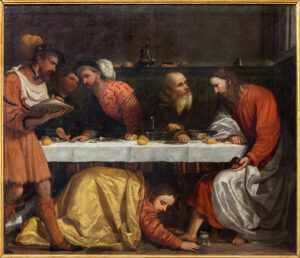
The Twelve Degrees of Humility
Written in the sixth century by the father of Western monasticism himself, St. Benedict, this common-sense guide to living a truly Christian life is applicable

Written in the sixth century by the father of Western monasticism himself, St. Benedict, this common-sense guide to living a truly Christian life is applicable

The following excerpt was taken from The Rule of Saint Benedict and is an explanation of the twelve degrees of humility according to the Father of Western Monasticism himself.

The first step of humility is obedience without delay. This comes natural to those who, either on account of the holy servitude they have professed, through fear of hell, or for the glory of life everlasting, consider nothing more dear to them than Christ. As soon as their Superior commands them to do something, they make no delay in doing it, just as if God Himself commanded them.

The first step of humility is obedience without delay. This comes natural to those who, either on account of the holy servitude they have professed, through fear of hell, or for the glory of life everlasting, consider nothing more dear to them than Christ. As soon as their Superior commands them to do something, they make no delay in doing it,

Idleness is an enemy of the soul. Therefore the brothers should be employed at certain times in working with their hands, and at other fixed times in holy reading. Therefore we think that both these occasions may be well ordered in this way: from Easter until the first of October, let them, ongoing forth from Prime, work at whatever they are required until about the fourth hour. From the fourth, until close upon the sixth hour, let them be employed in reading. On rising from table after the sixth hour, let them rest on their beds with all silence, or if anyone desires to read, let him read in such a way as not to disturb anyone else. None should be said seasonable, at about the middle of the eighth hour, and after that let them work at what they have to do until the evening. If the situation of the place, or their poverty requires them to work by reaping their corn, they should not be saddened, for then are they Monks in very deed, when they live by the works of their hands, as our Fathers and the Apostles did before us. Yet, all things should be done with moderation for the sake of the fainthearted.

Brothers, the Holy Scripture cries to us, saying: “For everyone who exalts himself will be humbled, but the one who humbles himself will be exalted” (Lk 14:11). By these words it declares to us that all exaltation is a kind of pride, which the Prophet shows must carefully be avoided when he says: “LORD, my heart is not proud; nor are my eyes haughty. I do not busy myself with great matters, with things too sublime for me” (Ps 131:1). But why? “Rather, I have stilled my soul, hushed it like a weaned child. Like a weaned child on its mother’s lap, so is my soul within me” (Ps 131:2).

A Monk’s life should at all times resemble a continual Lent, but few have such virtue.
Thus, we encourage everyone during Lent to live in all purity, and during this holy season to wash away all the negligences of other times.

TAN Direction – Catholic Spiritual Direction From the Saints and Faithful Modern Authors
TAN Books
PO Box 269
Gastonia, NC 28053
CustomerService@tanbooks.com